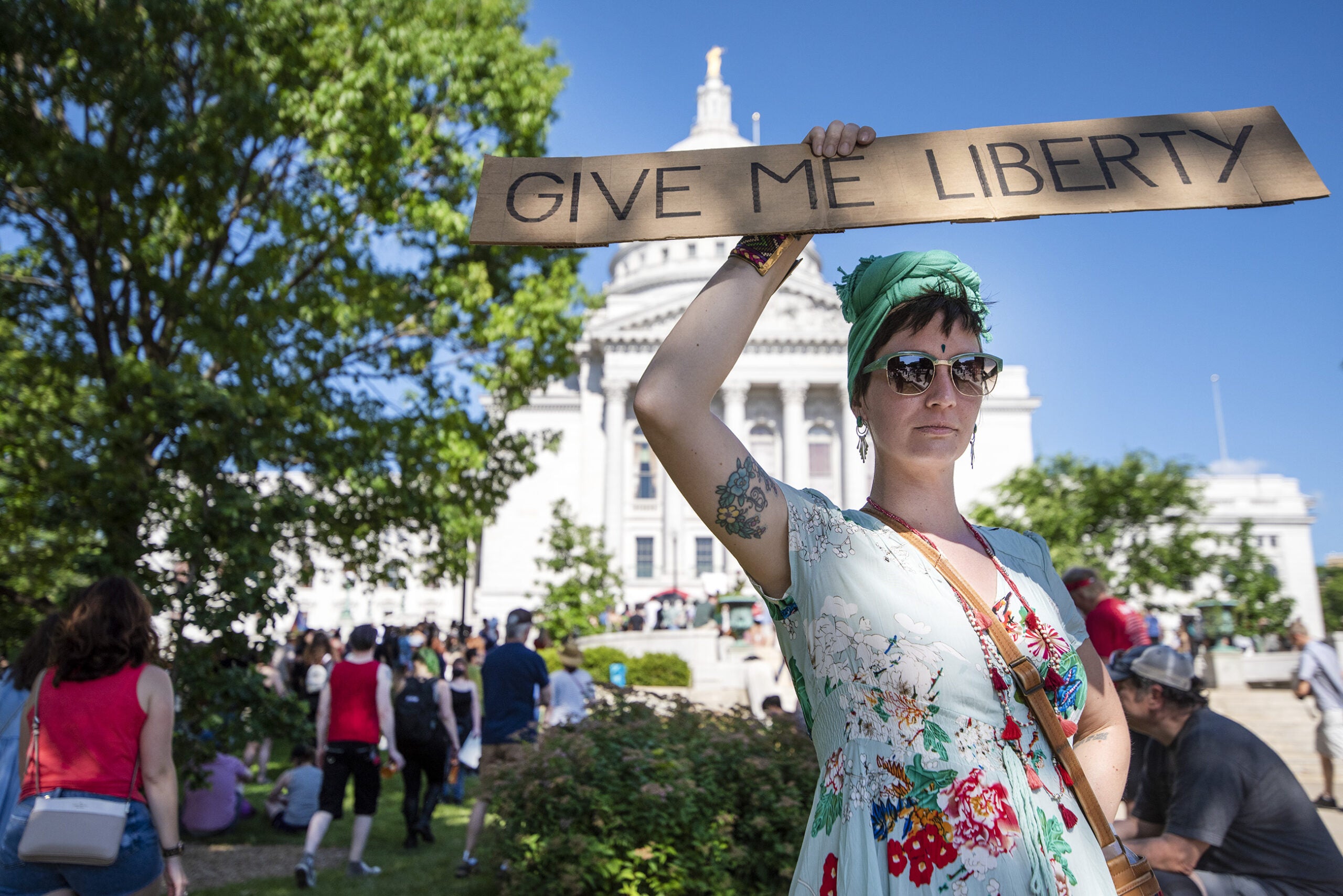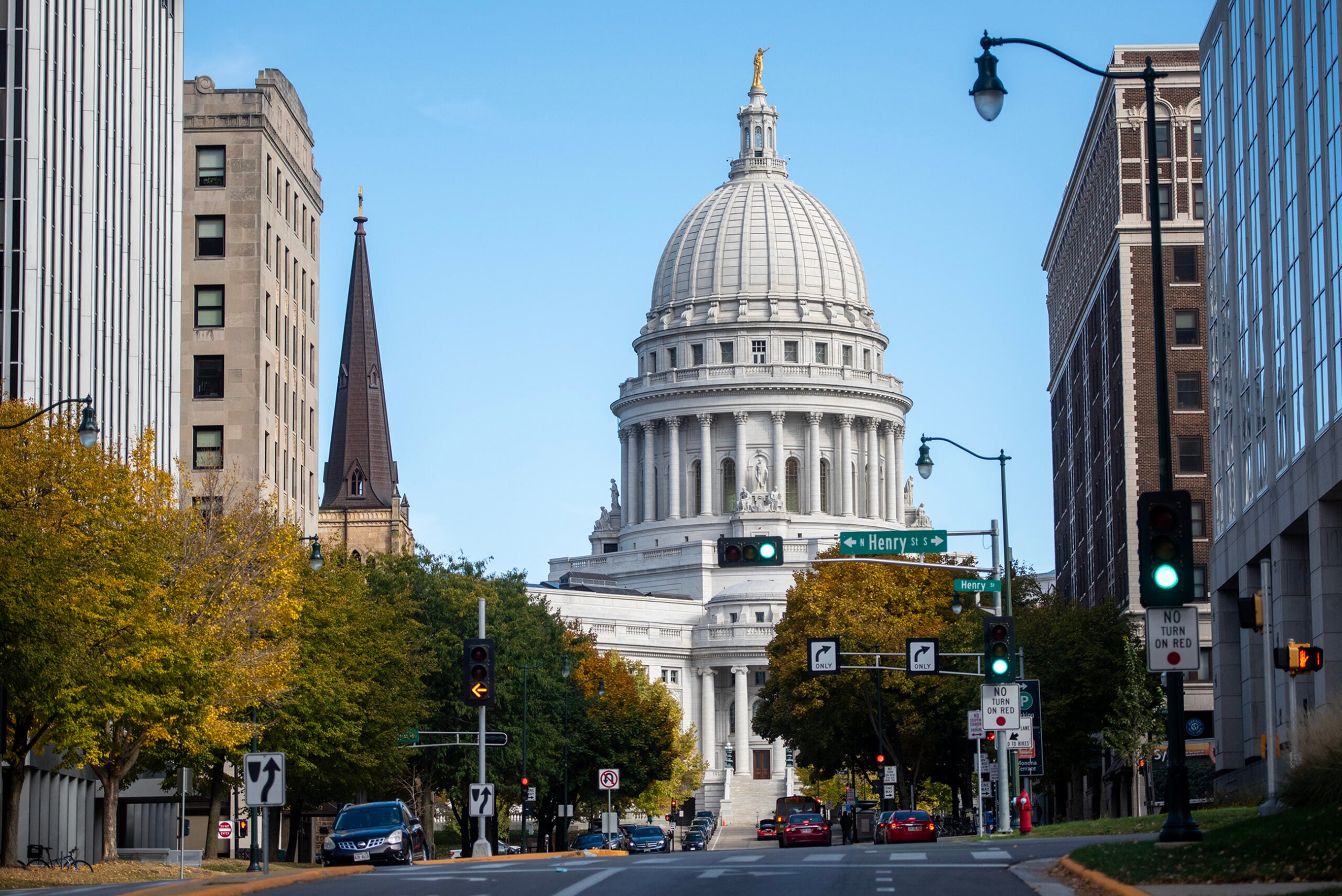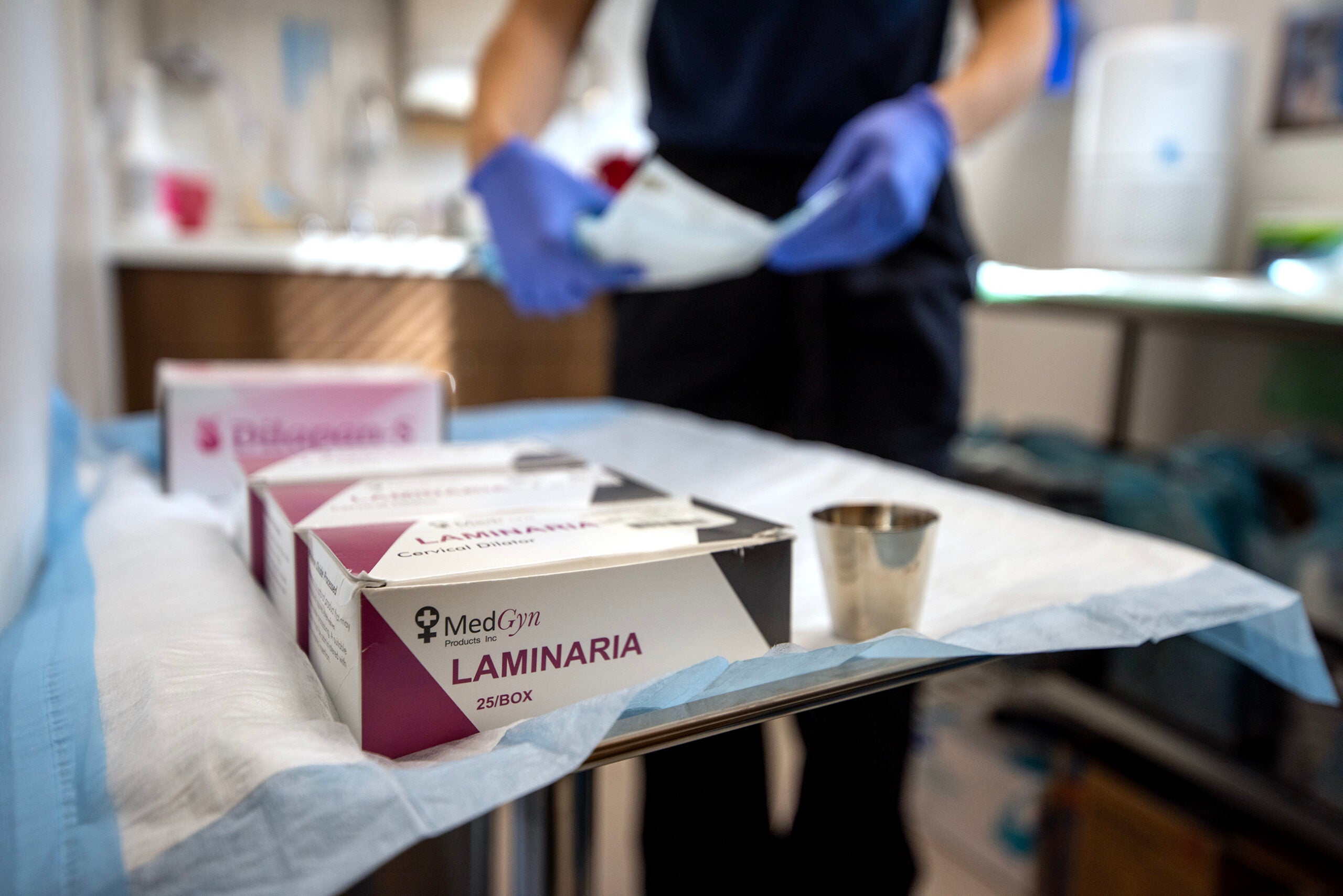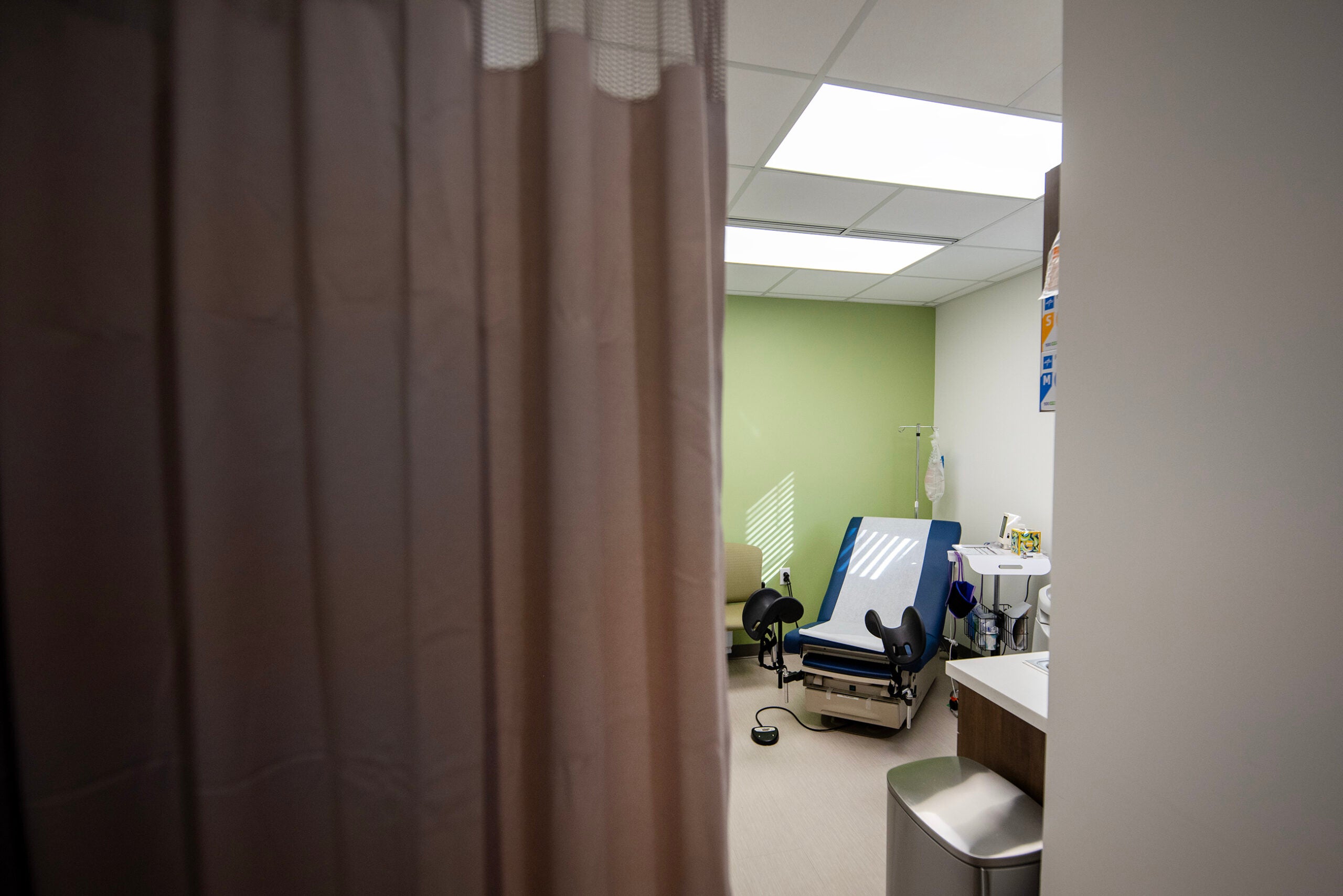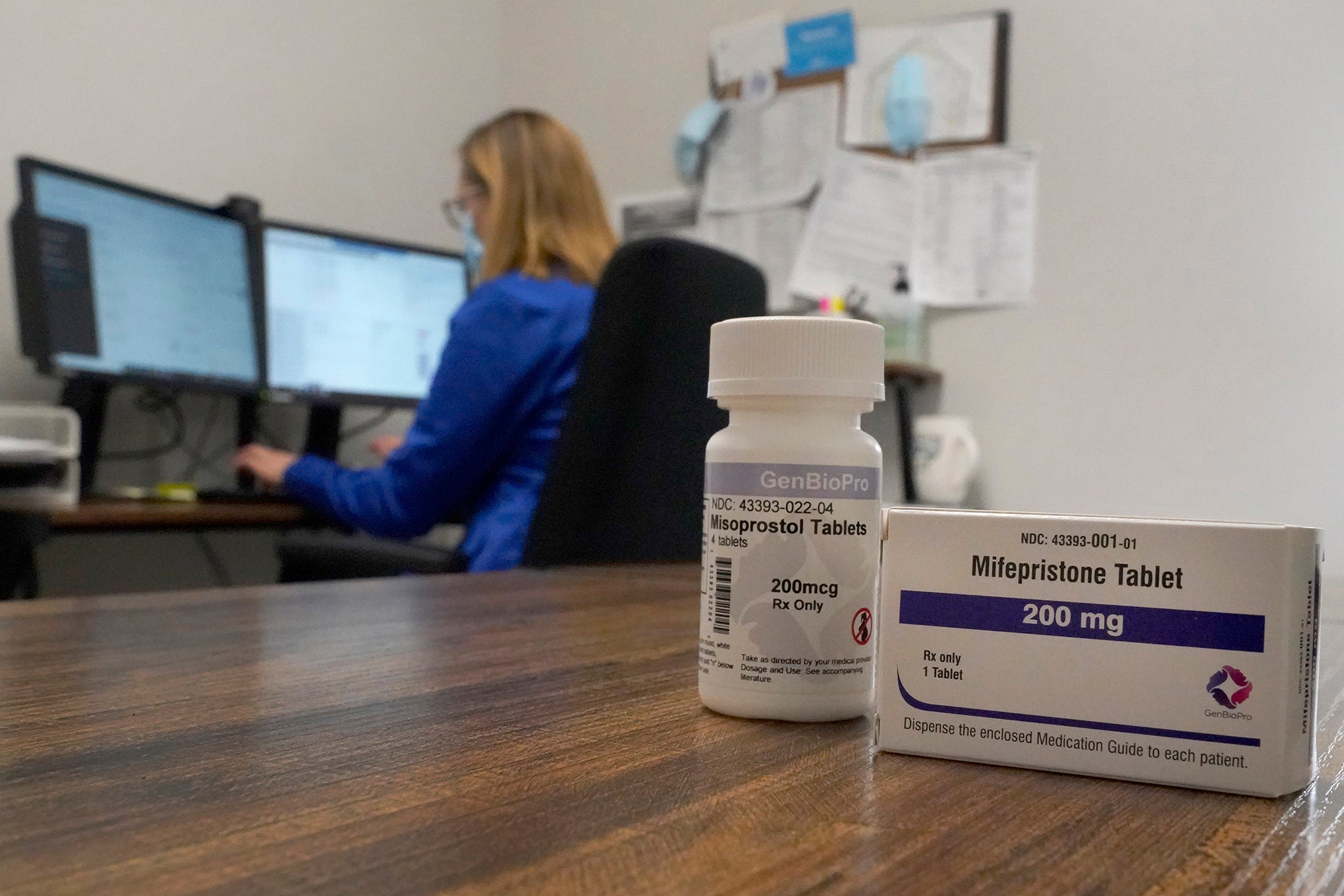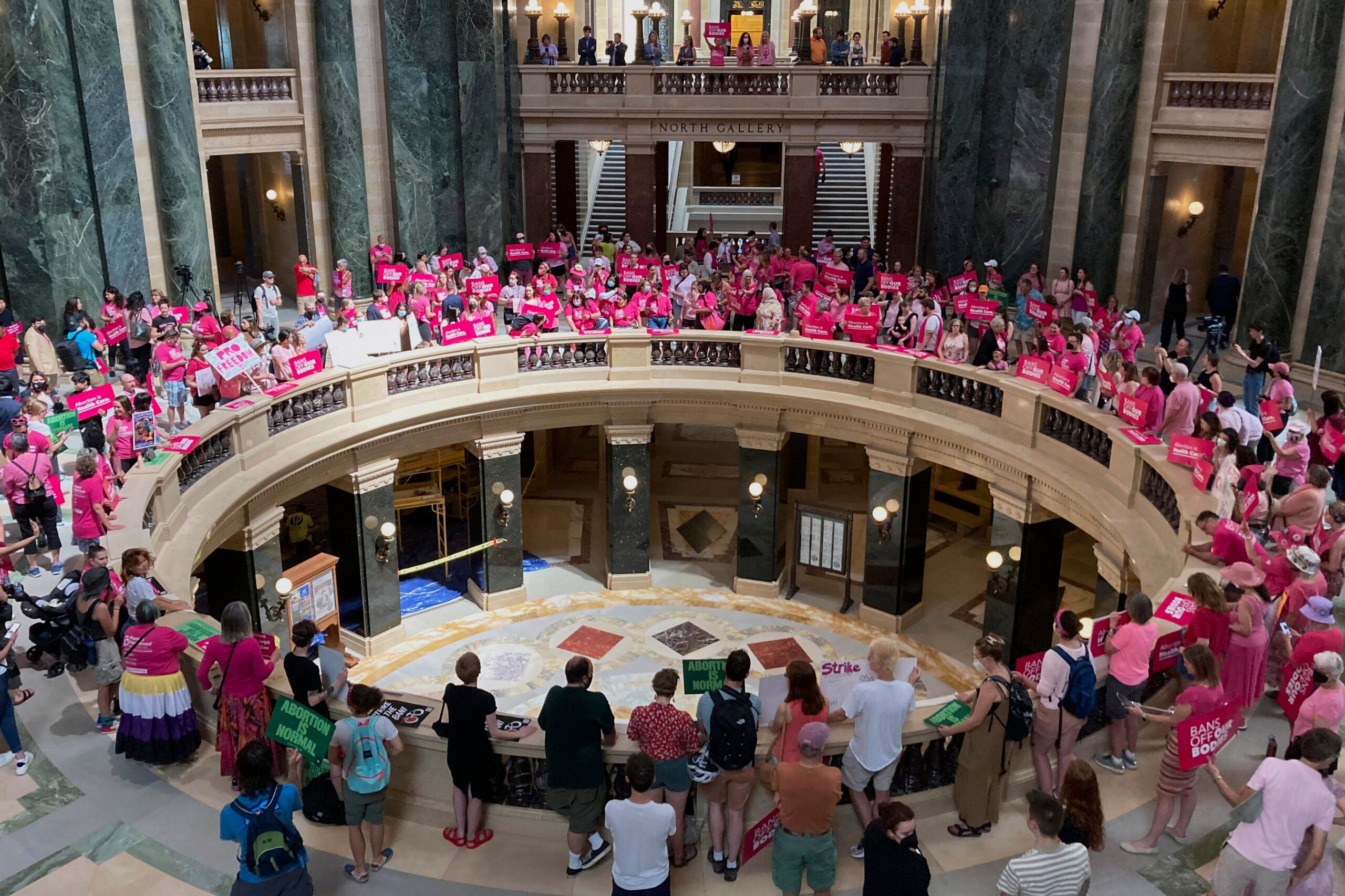For Democrats running for office the year, the calculation is simple: They believe their position on abortion rights is popular, and the Republican Party’s anti-abortion views are unpopular.
Across multiple races, Democrats are running ads and holding events in the closing weeks of the campaign to highlight their support for abortion rights — and their opponents’ opposition. Lt. Gov. Mandela Barnes, the Democrats’ candidate for U.S. Senate, has held a series of “Ron Against Roe” campaign rallies. Democratic Gov. Tony Evers has launched new ads that say Republican Tim Michels would force a 12-year-old who is raped to give birth.
Michels has long opposed rape and incest exceptions for abortion laws. As recently as June, Michels told WISN-TV that he opposed exceptions beyond cases where the mother’s life was threatened. Last month, he backed away from that position, telling a conservative talk radio host that as governor he would not veto a law adding rape and incest exceptions. Democrats point out that the GOP-controlled Legislature has repeatedly declined to pass such a law. This week, Evers told reporters he wouldn’t sign that bill anyway, saying lawmakers should codify Roe v. Wade’s abortion protections.
News with a little more humanity
WPR’s “Wisconsin Today” newsletter keeps you connected to the state you love without feeling overwhelmed. No paywall. No agenda. No corporate filter.
For Michels, it’s a long-held view. In 2004, when he was running for U.S. Senate against Democratic Sen. Russ Feingold, he addressed the issue in an appearance on Wisconsin Public Radio’s regional talk show “Route 51.”
“This is the question that is always brought up, and it’s one of these very, very extreme cases,” Michels said of the rape of a 12-year-old. He said he couldn’t think of a worse crime, and his heart would go out to anyone in that situation.
“But I think in the end, what I would try and tell them is: There’s a life in there, a life that was created by God. And if you carry that baby full term, there’ll be 25 or 35 couples that will be there willing and ready to adopt that baby, and love it, and raise it as their own. So that’s where my position is on this, and I make no apology for being pro-life.”
A Michels campaign spokesperson pointed to his recent statements on the issue and said the quote was nearly 20 years old. A spokesperson for Michels’ opponent this year, Democratic Gov. Tony Evers, said “abortion is on the ballot in November.”
The 2004 interview is a window into how different the world was in 2004 from the 2022 gubernatorial campaign. In 2004, Roe v. Wade, the landmark 1973 ruling that established a right to abortion access, was the law. For both Feingold and Michels, the example of the 12-year-old girl was purely hypothetical.
Neither of those things is true anymore.
The U.S. Supreme Court’s Dobbs v. Jackson Women’s Health decision overturning Roe in June was a generational victory for social conservatives. Its effects in Wisconsin were immediate: The state reverted to its 1849 law banning abortions except in cases where the mother’s life is threatened, and all abortion clinics in the state stopped performing abortions.
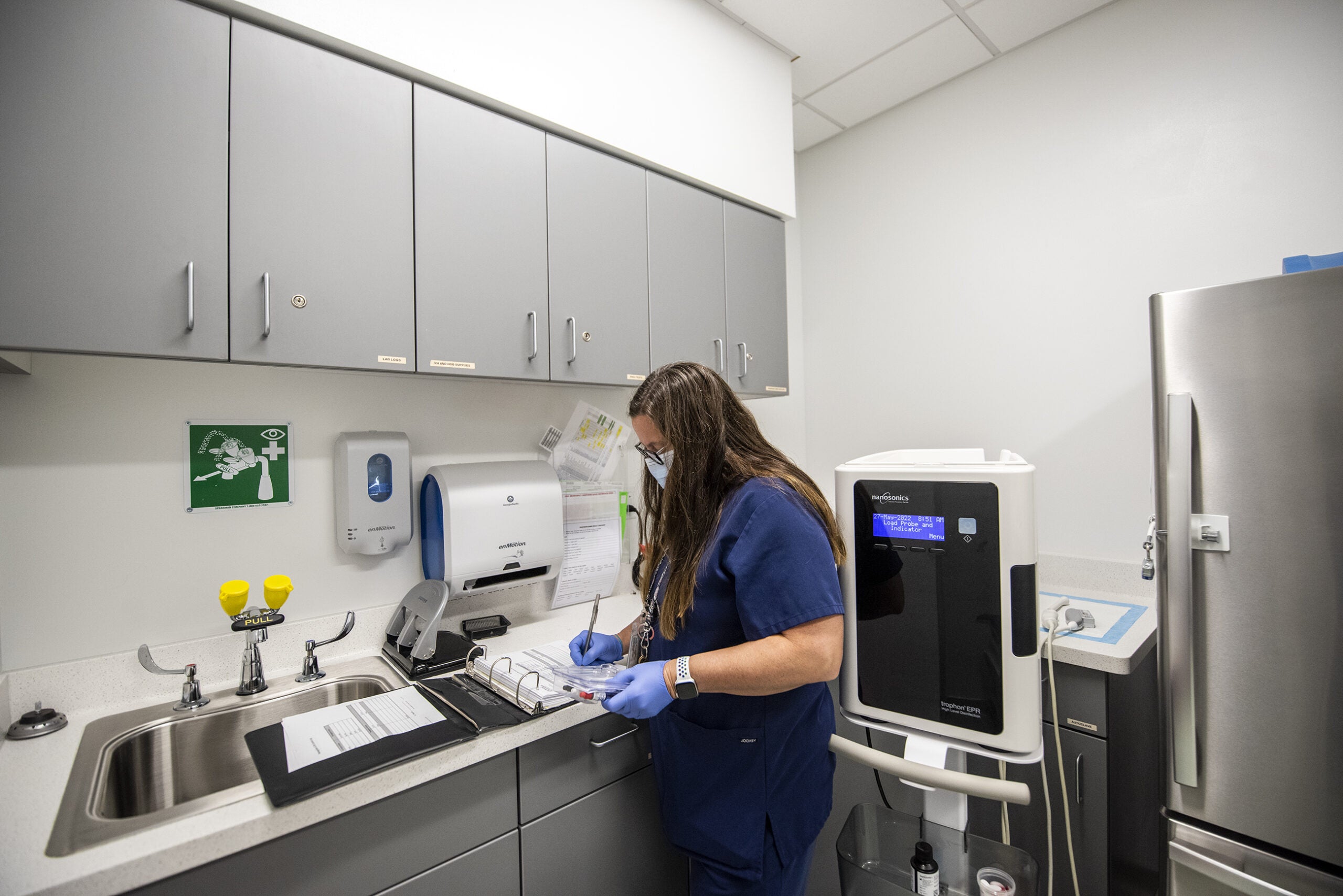
Its effects on Wisconsin’s electorate are not yet known. Nationally, there is evidence from public opinion surveys that women have swung toward Democrats since the court’s decision. And Democrats including Evers and Lt. Gov. Mandela Barnes, who is challenging Republican U.S. Sen. Ron Johnson this year, have made the issue a centerpiece of their campaigns’ appeals in the few weeks before the Nov. 8 midterm elections.
That’s because Wisconsin’s abortion ban, which includes no exceptions for cases of rape or incest, is not popular. In January, before most Americans were aware that the Supreme Court could overturn the right to abortion, the Marquette University Law Poll found that a broad, national majority supported Roe v. Wade. In Wisconsin polls from May through September, it found about two-thirds of voters believe abortion should be legal in all or most cases. Its September poll found more than 80 percent of Wisconsin voters believed the law should allow abortions in cases of rape and incest. In the Marquette poll released Wednesday, that number had risen to 83 percent.
Interviews with independent voters reveal distrust of GOP on abortion
Ashley Koenen was a longtime Republican with close ties to the conservative movement, even working on Wisconsin GOP campaigns. The 36-year-old from Waukesha has considered herself an independent since 2016, though, and has either voted for third-party candidates or refrained from voting since then.
“The Dobbs decision absolutely has affected how I will vote this year,” she told WPR in an email. “A divided government is the most realistic, best-case scenario for Wisconsin women, so I will be voting for Evers and (Wisconsin Attorney General Josh) Kaul. This is the first time I will vote for Democrats in state races, and I will do so without any hesitation.”
Koenen was one of more than 100 Wisconsin voters who told the Wisconsin Main Street Agenda project that abortion was her most important voting issue in the midterms. The project is a collaboration between Wisconsin Public Radio, USA TODAY NETWORK-Wisconsin and the La Follette School of Public Affairs at the University of Wisconsin-Madison.
“I’m deeply concerned about inflation and gas prices and taxes,” she wrote, “but none of that matters if I don’t have ownership over my own body.”
For Democrats, the votes of women like Koenen could be the difference between winning and losing in a closely divided state. WPR interviewed five women who, like Koenen, said abortion was their most important voting issue in the midterms and who all identified as politically independent or who leaned Republican.
“The government should not be involved,” said Jean Bartz, 35, of Baraboo, who ran for Assembly as an independent in 2020. “I don’t want a politician making decisions that I should be making with my health care provider.”
That was a common theme among the women interviewed, and it echoes appeals made by Barnes and Evers. Michelle Johnson, 43, a single mom of three, said that “more than just abortion being medical care, it’s also about people having the right to make their own choices in their lives.”
Jill Receley, 71, of Cudahy, said she has a fiscally conservative streak that led her to identify with Republicans on tax and business regulation issues. But in recent years, she has tended to identify with Democrats, and the abortion ban has cemented those views.
“If any woman in this state votes Republican, they are totally out of their minds,” she said.
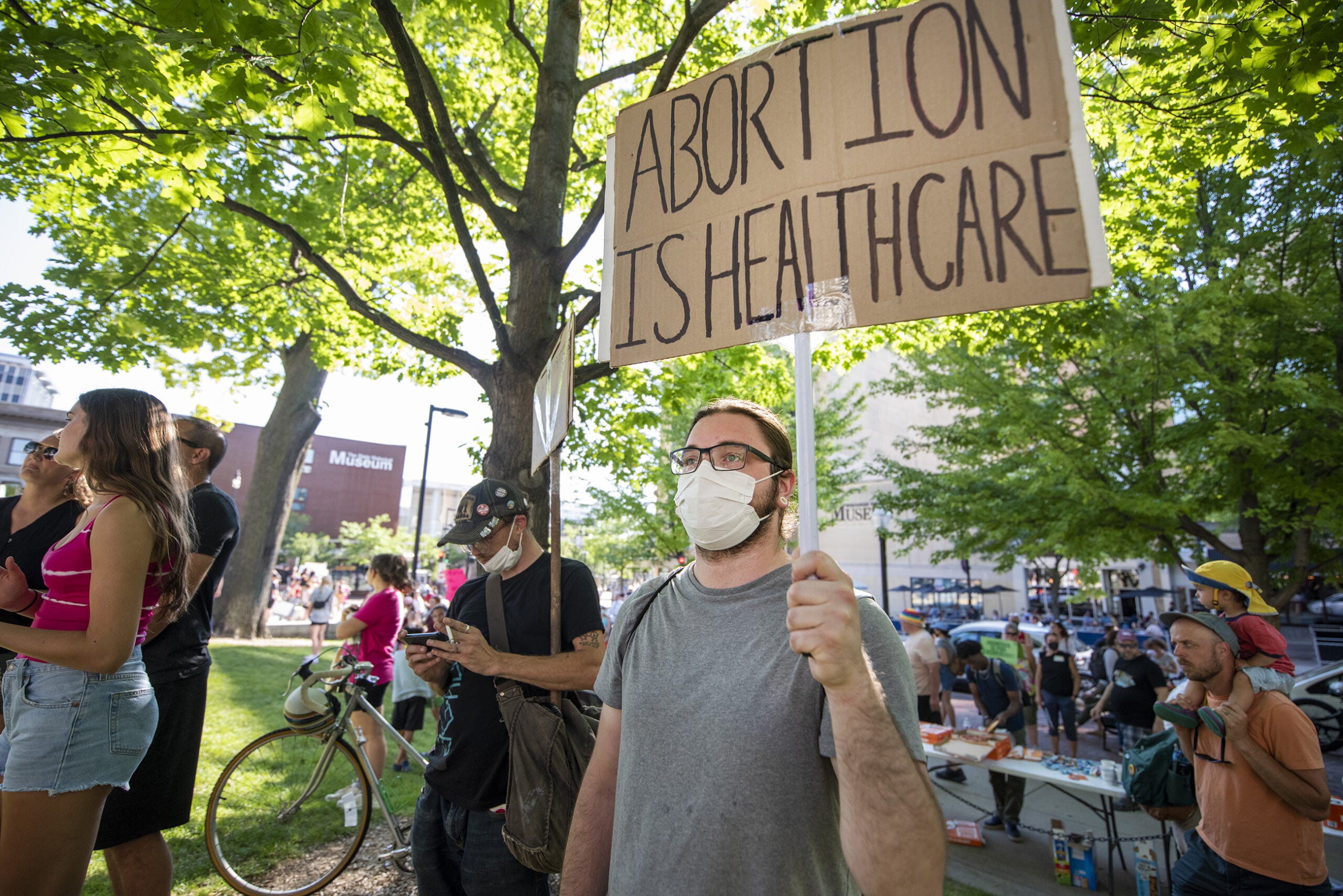
Abortion issue divides Republicans, too
Of course, plenty of women disagree, and do intend to vote Republican. Johnson appears to be leading in the Senate race. Polls show the governor’s race as a dead heat. In both cases, GOP candidates have support from tens of thousands of women who simply hold conservative political views, including on abortion.
But small shifts can have big consequences. Republican Donald Trump won Wisconsin in 2016 by less than 1 percentage point; Evers won in 2018 by just over that amount; and in 2020, Democrat Joe Biden won the state by less than 1 point.
“We’ve always known that we are up against polling,” said Gracie Skogman, legislative director for Wisconsin Right to Life. “We are up against very serious differences of opinion.”
Skogman said anti-abortion activists are on the right side of public opinion when it comes to support for pregnancy resource centers and in advocating for health care coverage or paid family leave to accommodate pregnancies. But she acknowledged that political candidates like Michels have to respond to public opinion in other ways.
“They’re speaking the message that they believe resonates most with voters,” Skogman said. “Our job as pro-lifers is to message directly to the pro-life electorate, so that they have clear information on the positions of candidates.”
For Democratic activists, the goal is to publicize areas where most voters disagree with Republican candidates. State Treasurer Sarah Godlewski, who ran for the Democratic nomination for U.S. Senate this year, has launched a political action committee called Wisconsin Women Win that is all about trying to reach women who may not have been involved in politics before but who’ve been activated by this issue. She discussed the PAC at a September campaign event with Democratic congressional candidate Brad Pfaff, who was touting his endorsements from abortion rights groups.
“For me, it was about: What can we do to make sure that this issue doesn’t leave the table?” Godlewski said at the event. “We can’t allow it to be an afterthought anymore.”
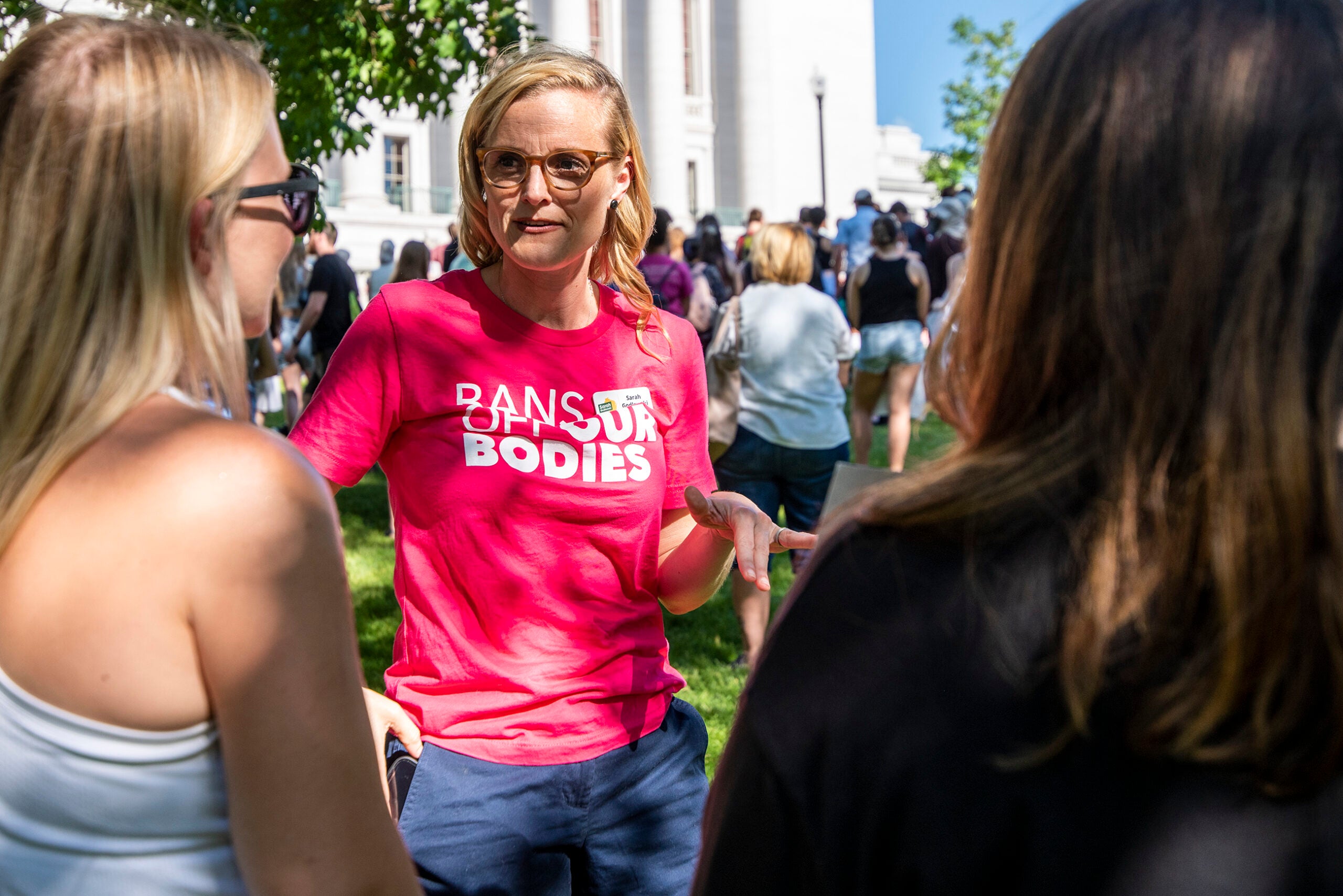
Godlewski said part of her group’s work is in making sure women who care about this issue are registered to vote. In conservative Kansas, for example, new voters and a surge in voter turnout were enough to defeat a constitutional amendment that would have banned abortion there in August. Godlewski and other Democrats want to see a similar voting wave in Wisconsin, and they think politically independent women are the key.
Historically, abortion is not an issue that has a particularly large gender gap, said political scientist Mary-Kate Lizotte of Augusta University. Lizotte studies gender differences in public opinion and is the author of a book on the subject. She said women tend to be more religious than men — they are more likely to tell surveys they pray or attend church services regularly — and for many, opposition to abortion is linked to religious beliefs.
But a gender gap is detectable on the issue, she said, with women being slightly more likely to support abortion rights than men. And it’s also an issue where there is an opinion divide within those who identify as Republicans.
“Republicans in general are much more likely than Democrats to disagree with their party on overturning Roe,” Lizotte said.
For many voters, Lizotte said, it’s likely that other issues — inflation, gas prices, crime — will be more important than the future of abortion access to their vote in November. It’s unlikely that large numbers of Republicans will shift their votes this year because of the issue.
But that doesn’t mean the issue won’t continue to reshape the electorate into the future.
“Even if they don’t identify as pro-choice, or have always identified as weakly pro-life,” she said, “there’s a lot of people who are not going to be in favor of a complete lack of (abortion) access.”
Wisconsin Public Radio, © Copyright 2025, Board of Regents of the University of Wisconsin System and Wisconsin Educational Communications Board.

